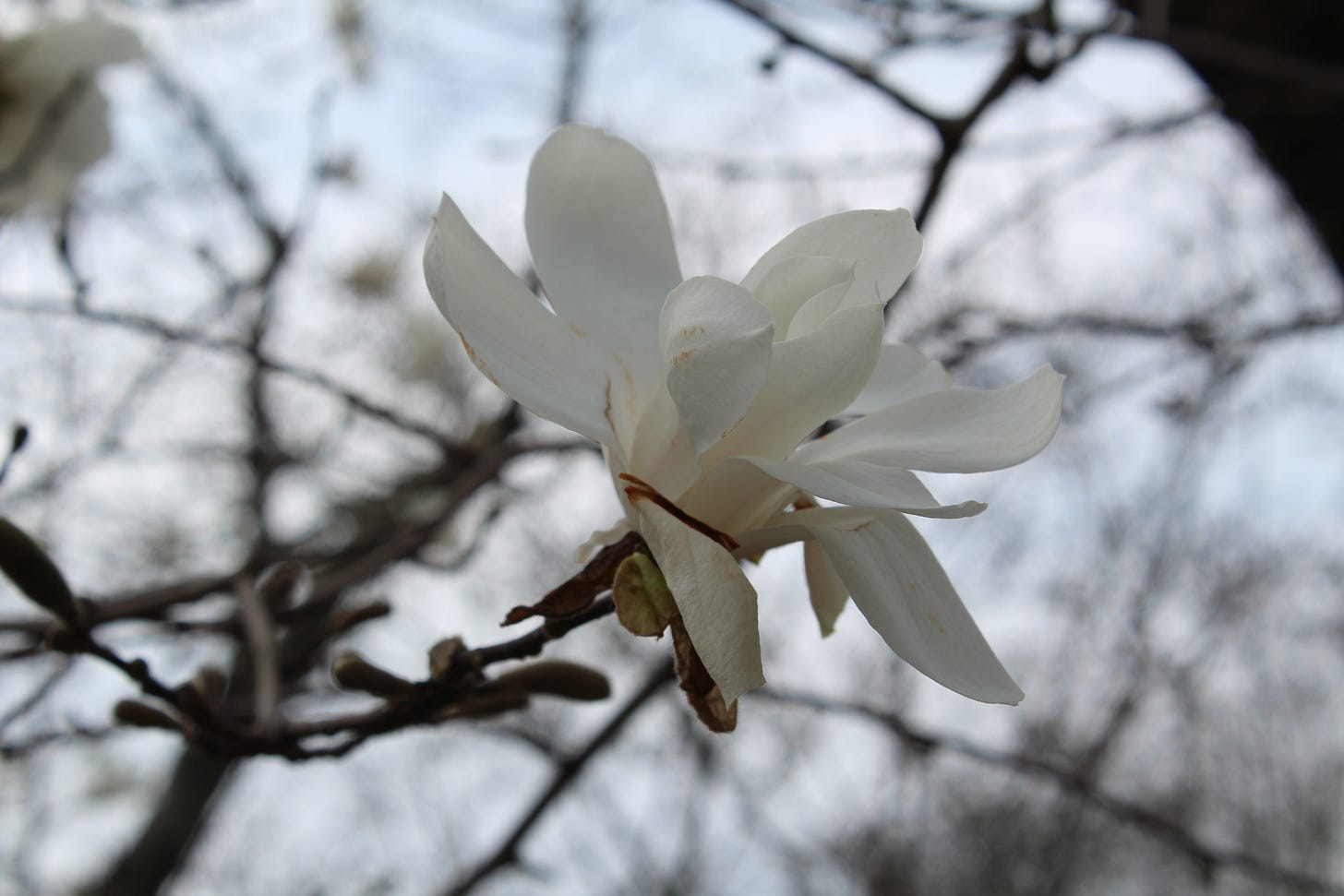Dear Friends,
When I announced that I was stepping down from my role at CCW, Easter and my final Sunday were months and months away. Time is slippery, of course, and we are now quickly moving to the end of Lent and our Holy Week celebrations. Over the next month, I hope you are able to join us in the sanctuary or online as we celebrate Easter and wrap up our time together in ministry. Winifred is planning some beautiful music and I am excited to conclude our conversations about Matthew Fox’s Creation Spirituality and to dive into the themes of the Easter season,
Over the past couple of weeks, I have been rereading C.S. Lewis’ The Chronicles of Narnia, one of my childhood favorites. Throughout the seven short novels, children live into the way of awe and wonder, the way of releasing and letting go, the way of creativity and generatively, and the way of justice and transformation. They discover the wildness of life and experience the Christ—creative transformation—in their relationship to Aslan, the good but very unsafe lion.
In the first novel, The Lion, The Witch, And The Wardrobe, young Lucy Pevensie meets Mr. Beaver who tells her this prophetic poem:
“Wrong will be right when Aslan comes in sight,
At the sound of his roar, sorrow will be no more,
When he bares his teeth, winter meets its death,
And when he shakes his mane, we shall have spring again.”
Though C.S Lewis is known for his Christian apologetics, the creativity and celebration of life—what Hildegaard of Bingen named veriditas or greenness—that are central to a creation-centered spirituality run through The Chronicles of Narnia. At the heart of the creation-centered spiritual tradition is the truth that we use our veriditas to participate in creating a world without sorrow. Each and every day, we have the opportunity to co-create with a better world. This work looks different for each of us. For some us, this will mean the sound of our roar as we participate in protests and describe the world we long to live in. For others, this will mean protecting and nurturing those in need.
And at times, all of us will shake our manes—express our truest selves in life-giving ways and soul-filled ways.
This year, winter is meeting its death and we shall have spring again. And with spring, changes will come. I am excited and hopeful for this community as you continue the conversations about what your ministry will look like moving forward and begin to discuss your new pastoral leadership. I am excited to take the next steps in my chaplaincy ministry and to discover new ways to be in community.
Let’s celebrate these changes and shake our manes together this month.
Peace,
Rob
Join Us For Worship
Join us in person or online this Sunday morning as Pastor Rob continues to reflect on the fourth and final movement in Matthew Fox’s vision of a creation-centered spirituality—the Via Transformativa, the way of justice and transformation. Music will be led by CCW Music Director Winifred Brown and Sam Krausz. This week’s worship leader is Rich Winship.
As a community rooted in Christian tradition, we celebrate communion on the first Sunday of each month. All are invited to join us at the table. Everyone is invited to bring non-perishable food items to be donated to the New Trier Food Pantry and any loose offerings will be added to the Deacon’s Fund.
After worship, everyone is welcome to join us in the CCW Lounge for coffee hour. This week’s coffee hour is hosted by Peg Kritzler.
For those joining us in person on Sunday morning, we continue to request that everyone keeps their mask on during worship to ensure that everyone who attends feels safe. If you are attending online, please feel free to turn your camera on during the service and to unmute as we share joys and concerns or share our reflections.
To participate in the worship online via Zoom, please click on the button below.
Living and Serving Together
Additional Resources Regarding Creation Spirituality
Our worship services through Lent have been and will continue to be focused on creation spirituality, a form of Christian spirituality that centers itself on a reverence for life and embodiment and rejects the dualism of the fall/redemption spirituality that has shaped western Christianity over the past thousand year. Though the name creation spirituality and the description of the four unique paths is contemporary, it is rooted in the works of the Hebrew prophets, the teachings of Jesus, and the writings of Christian mystics such as Hildegaard of Bingen, Meister Eckhart, Julien of Norwich, and Thomas Merton. Creation spirituality also celebrates feminist, earth-based, and indigenous spiritual teachers, poets, and artists, as well as contemporary scientists and philosophers.
To learn more about creation spirituality, I encourage you to take a look at Matthew Fox’s website as well as the website for Creation Spirituality Communities.




